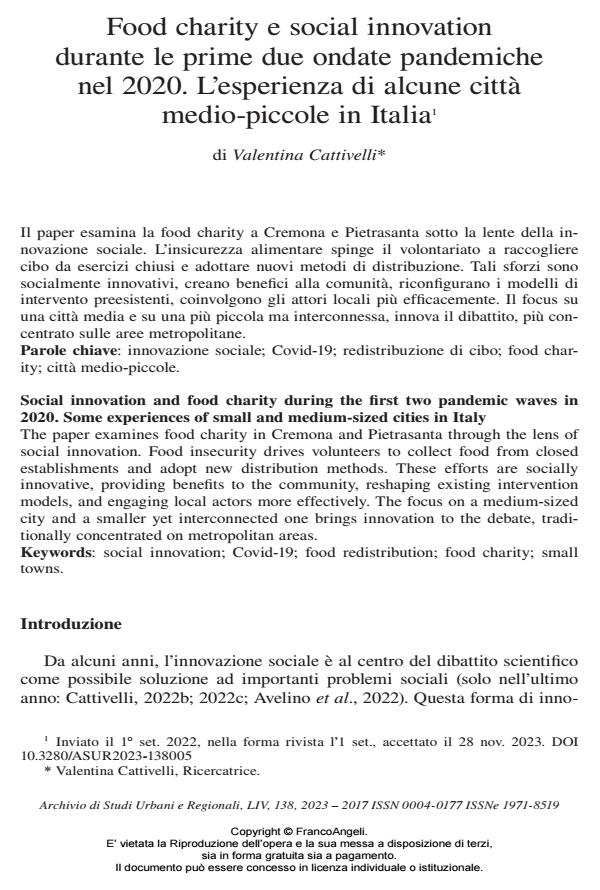Food charity e social innovation durante le prime due ondate pandemiche nel 2020. L’esperienza di alcune città medio-piccole in Italia
Titolo Rivista ARCHIVIO DI STUDI URBANI E REGIONALI
Autori/Curatori Valentina Cattivelli
Anno di pubblicazione 2024 Fascicolo 2023/138
Lingua Italiano Numero pagine 22 P. 89-110 Dimensione file 141 KB
DOI 10.3280/ASUR2023-138005
Il DOI è il codice a barre della proprietà intellettuale: per saperne di più
clicca qui
Qui sotto puoi vedere in anteprima la prima pagina di questo articolo.
Se questo articolo ti interessa, lo puoi acquistare (e scaricare in formato pdf) seguendo le facili indicazioni per acquistare il download credit. Acquista Download Credits per scaricare questo Articolo in formato PDF

FrancoAngeli è membro della Publishers International Linking Association, Inc (PILA), associazione indipendente e non profit per facilitare (attraverso i servizi tecnologici implementati da CrossRef.org) l’accesso degli studiosi ai contenuti digitali nelle pubblicazioni professionali e scientifiche.
Il paper esamina la food charity a Cremona e Pietrasanta sotto la lente della in¬novazione sociale. L’insicurezza alimentare spinge il volontariato a raccogliere cibo da esercizi chiusi e adottare nuovi metodi di distribuzione. Tali sforzi sono socialmente innovativi, creano benefici alla comunità, riconfigurano i modelli di intervento preesistenti, coinvolgono gli attori locali più efficacemente. Il focus su una città media e su una più piccola ma interconnessa, innova il dibattito, più concentrato sulle aree metropolitane.
Parole chiave:innovazione sociale; Covid-19; redistribuzione di cibo; food char¬ity; città medio-piccole.
Valentina Cattivelli, Food charity e social innovation durante le prime due ondate pandemiche nel 2020. L’esperienza di alcune città medio-piccole in Italia in "ARCHIVIO DI STUDI URBANI E REGIONALI" 138/2023, pp 89-110, DOI: 10.3280/ASUR2023-138005